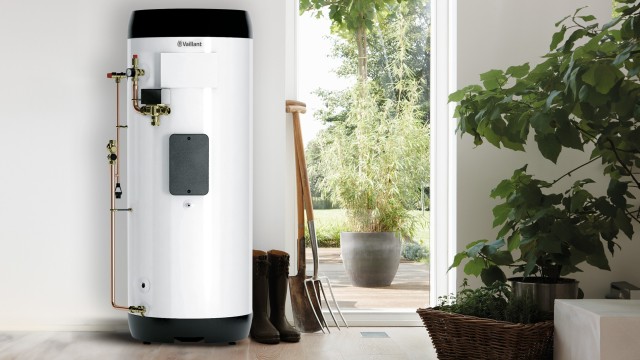In this article, learn more about how hot water tanks work and the ideal temperature to set yours at.
Hot water tank temperature

What is a hot water tank?
A hot water tank, also known as a hot water cylinder, is heated by a heat pump, boiler or an immersion heater which sits inside the cylinder. Hot water is then stored is part of your full heating system and are often used in the hot water tank for when it’s needed for activities like showering and cleaning.
Cold water storage tanks may be needed for central heating and hot water.
How does a hot water tank work ?
Hot water is stored in the hot water cylinder ready for use. There are two types of hot water tanks, vented and unvented.
A “vented” hot water cylinder is heated by a coil of pipe inside which is connected to the boiler or heat pump. There may be an immersion heater which sits in the side of the tank which is fed by a cold water storage tank (usually in the loft or airing cupboard).
An “unvented” hot water tank is also heated by a coil of pipe inside which is connected to the heat pump or boiler, again there may be an immersion heater which sits in the side of the tank. The water in the tank is fed directly from the cold water mains. It doesn’t require a cold water storage tank.
In both cases, the water in the tank is heated by the hot water traveling from the boiler. It is pumped through a copper coil inside the water tank, this coil heats the water inside the tank which is then used at the taps/showers etc.
Watch the video: 'What is an unvented cylinder'

What are the benefits of a hot water tank?
Hot water tanks have many benefits. While some may worry about it taking up valuable space, hot water tanks can be placed in a cupboard, converting the area into an airing cupboard. This space offers greater flexibility as they are perfect for storing clean towels, bedding, and clothes.
For larger families, a hot water tank system can be very practical due to its ability to handle high demands for hot water at multiple times. With multiple bathrooms or an ensuite, you'll always have a constant supply of hot water available whenever needed..
Another benefit of a hot water cylinders is that if you were to modernise and replace your system boiler with a heat pump, your heat pump can be connected up your existing hot water cylinder and still provide you with hot water for your home.
Hot water tanks are also very versatile. They can be heated in different ways, like with solar power or biomass fuels. Plus, they often have a backup heat source to make sure you don't run out of hot water if the main heating system was to fail.
Interested in a hot water cylinder? View our product range or find your local Vaillant installer.
What temperature should my hot water tank be set at?
A hot water tank temperature in the UK should be between 60°C to 65°C.
If the temperature is below 50°C, there’s an increased risk of growing bacteria such as Legionella that causes Legionnaires disease. This happens when your water has been stagnant in the water tank for a while.
If the temperature is above 65°C, then the water will be too hot to use, and it increases the risk of serious burns. Keeping the temperature at a safe level, 60°C to 65°C, makes the water hot enough to use and hot enough to kill unwanted bacteria.
To be on the safe side, hot water tanks are now required by law to be fitted with a thermostat to allow the temperature of the water in the tank to be set. Some hot water temperature sensors will allow you to keep track of the water tank temperature on your phone.
Watch the video: 'Vaillant heat pump cylinders and legionella protection'
Are hot water tanks energy efficient ?
The average household’s water tank usage is 14% to 18% of its energy consumption. This is why it’s great to seek alternative methods to save energy while using the hot water tank.
The good news is that modern water tanks are 100% energy efficient because they recycle the energy used from heating the water. This gives them the reputation of being great at retaining a set temperature.
Simple ways to ensure your hot water cylinder saves energy include:
-
Controls
Setting the best temperature on your heating control maintains the tank's temperature automatically. It could help you save on energy costs, for example storing at 60°C rather than 65°C. However, always beware of Legionella risk if the thermostat is set below 50°C.
-
Tank insulation
Adding a hot water cylinder jacket keeps the cylinder tank insulated, which means less heat escapes, helping the water stay warm for longer.
How long does a hot water tank last ?
The lifespan of a hot water tank can vary depending on factors such as the type of tank, usage patterns, and maintenance. Hot water tanks today tend to come with a minimum 25-year guarantee but can last longer if you take care of them.

